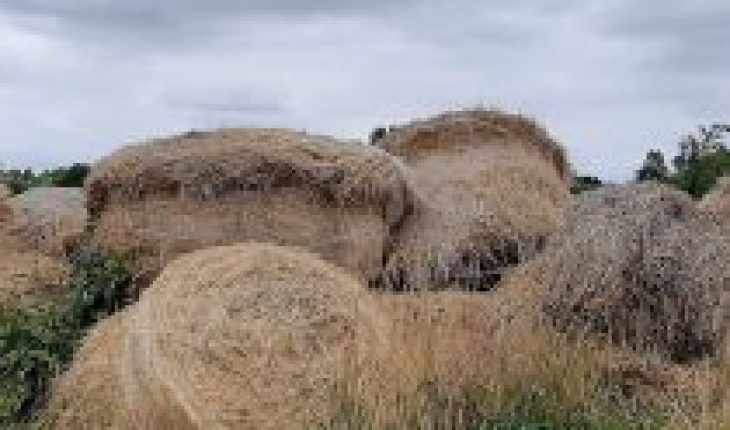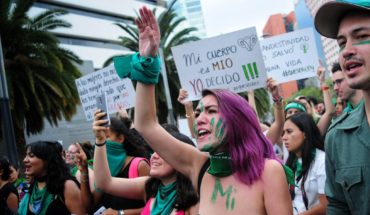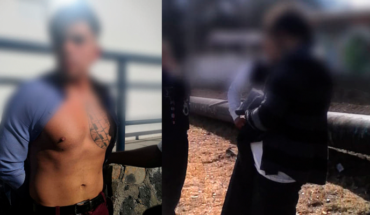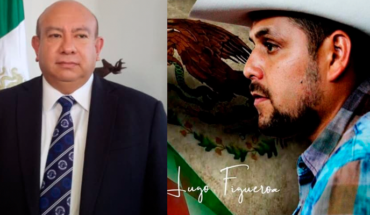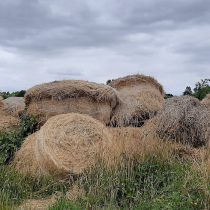
During 2020, Patricia Breit and Felipe Ríos began working on a revolutionary new idea: to develop a kind of leather and yarn from traces of straw generated in the harvesting process.
The idea of osorninos was developed after a trip to Ecuador for being selected to the Latin American Green Awards in the category sustainable entrepreneurship by its children’s brand Lugonia,
Now the purpose was to transform waste into raw materials for the textile industry with Patagon Fiber. “At the Latin American Green Awards we participated in a forum on sustainable fashion, where we saw the possibility of many biomaterials,” Breit recalls.
“We saw in the stubble a big problem in agriculture. After a while we began to investigate further and look for allies to advance the project, so we contacted the University of Los Lagos, who found it a tremendous challenge for their area of innovation. This collaboration with researchers for me is something new and is fundamental to the development of an idea,” he explains.
Patricia has been in the textile industry and her designer by profession for 10 years. He first decided to start with Evoka, reusing corporate wardrobes and then created Lugonia, a concept of didactic children’s clothing where children could play with the garments.
“The growth of sustainable materials has been exploding in recent years, working on the concept of slow fashion and setting aside poor labor practices, the use of polyester in textiles, and strengthening the certification of being an organic product, fair trade, sustainable development, among others, with a more eco-friendly and sustainable look,” he says.
For his part, Felipe Ríos, a doctor specializing in neuroeconomics, details that he previously advised an undertaking that took over stubble by turning them into animal feed. “I immediately thought about stubble, given its characteristics and potential, and it wasn’t until August 2020, that we started working full to generate a straw biotextile.”
alliance
The University of Los Lagos, through its Territorial Research Networks (RTI) programme, is being inserted into the great challenges of the region and the country, contributing to its progress with concrete contributions to solve various productive, ecological, social and public problems.
For research director Sandra Rios, “changing the way science is done in universities is the big challenge.”
This work of turning straw into a biotextile is being carried out by a team of researchers from the University of Los Lagos, within the framework of the “Sustainable Agri-Food System, Climate Change and Biodiversity”, one of the four Priority Research Areas (APIs), defined by the university, where they seek to contribute to the co-construction of local responses to global problems, generating networks and scientific-technological knowledge in synergy with the various local actors.
For Alex González, academic and director of the Laboratory of Environmental Microbiology and Extremófilos, “Patagon Fiber arrived at the University with the concern of developing fabrics with waste and one of his interest was wheat straw, where a large amount is lost and burned, generating a fairly important CO2 emission. So the challenge for our team was to transform this resource into something useful as biotelas, fulfilling the axes of sustainability and minimal impact of the environment, using harmless technology.”

